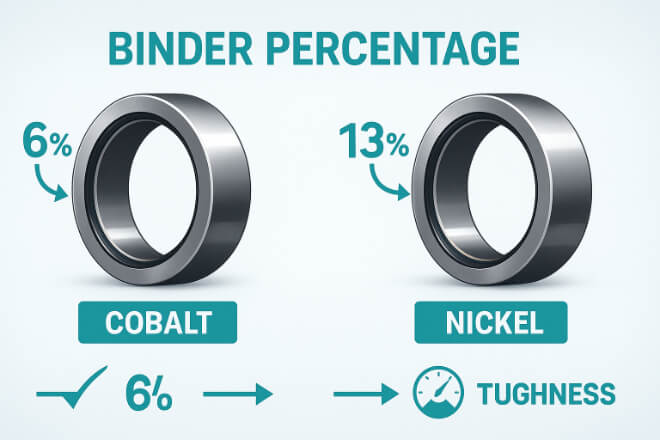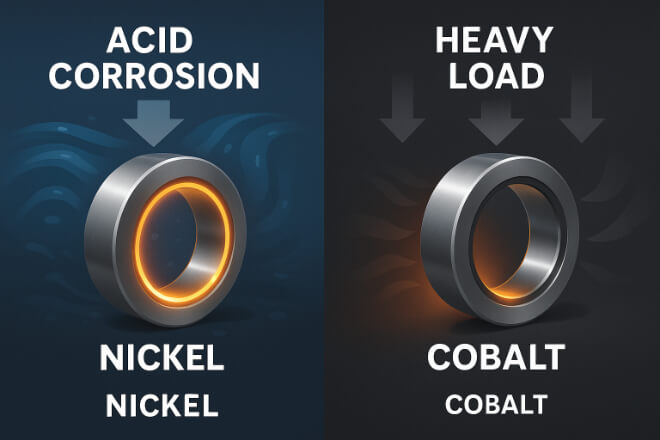ポンプ、タービン、コンプレッサーにおいて、シールリングは不可欠です。シールリングは漏れを止め、機器を保護し、安全な運転を維持します。
しかし、すべてではない タングステンカーバイドシールリング 同じです。グレードによって異なり、それぞれ特定の条件に合わせて設計されています。
意思決定者にとって、適切なグレードを選択することは、スムーズなパフォーマンスとコストのかかる故障の違いを生む可能性があります。
このガイドでは、環境、バインダーの種類、圧力、化学物質への暴露に基づいて、適切なタングステン カーバイド シール リング グレードを選択する方法について説明します。
グレード選択が重要な理由
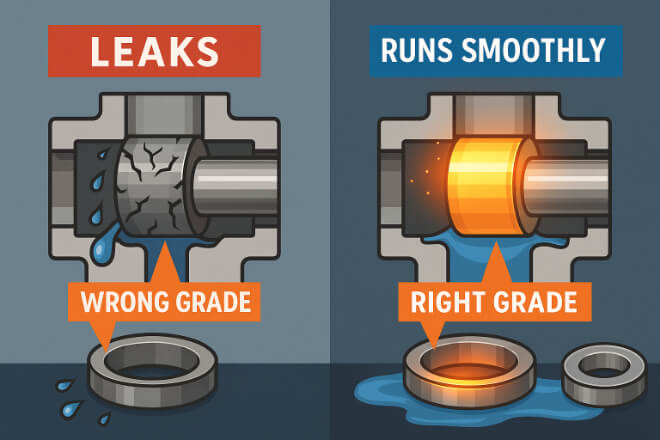
グレードが間違っていると、次のような結果になることがあります。
高負荷によるひび割れや摩耗
化学工場における急速な腐食
高温システムにおけるシール不良
交換コストの増加
適切なグレードは、環境、流体の種類、負荷条件に適合し、意思決定者に安心感とコスト削減をもたらします。
グレード選択に影響を与える運転条件
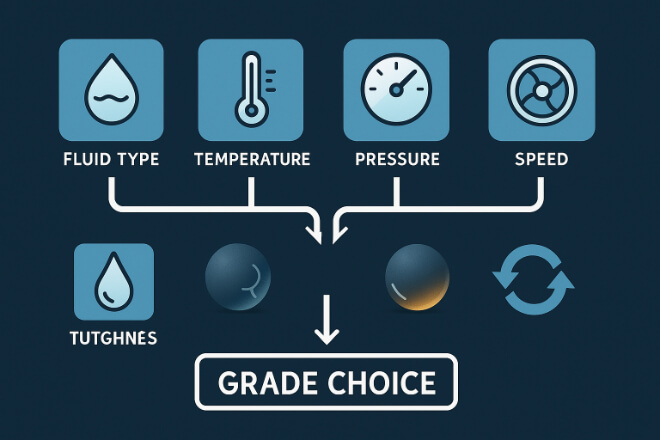
1). 流体の種類
酸、溶剤、海水 → ニッケル結合グレード
研磨スラリーまたは掘削泥水 → コバルト結合グレード
2)温度
標準的な炭化タングステンは高温環境でも機能します
熱衝撃グレードは、急激な熱変化のあるシステムに適しています。
3)圧力
高圧ポンプとタービン → コバルトバインダーが望ましい
腐食性媒体による中程度の圧力 → ニッケルバインダー
4)スピード
- 高速コンプレッサーとミキサーには、より滑らかで低摩擦のグレードが必要です
特殊コーティングおよび複合グレード
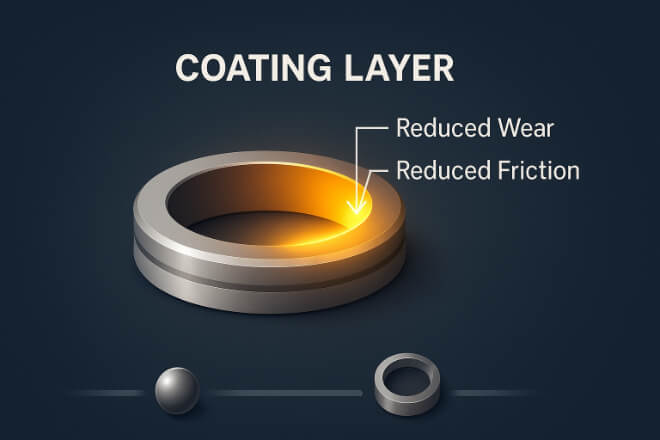
場合によっては、標準的なニッケルまたはコバルトグレードでは不十分です。
ダイヤモンドライクコーティング(DLC):摩擦に対するさらなる保護
複合グレード:特殊なニーズに合わせてセラミックと混合した炭化タングステン
研磨された表面:高速システムの熱と摩耗を軽減
意思決定者は、特殊な用途にコーティンググレードまたは複合グレードが必要かどうかをサプライヤーに確認する必要があります。
グレード選択の業界例
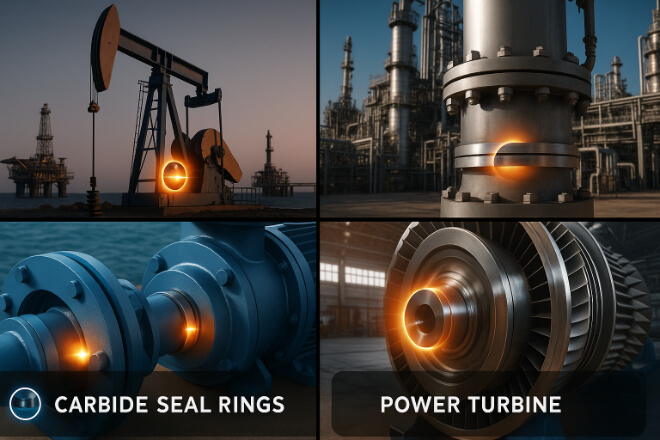
1). 石油・ガス
コバルト結合グレードは衝撃と摩耗に耐えるため、ダウンホールポンプやコンプレッサーに使用されます。
2)化学工場
酸や腐食性溶剤にはニッケル結合グレードが適しています。
3) 海洋・オフショア
ニッケル結合グレードは海水中で優れた性能を発揮し、早期の故障を防ぎます。
4)発電
コバルト結合グレードは、圧力と熱が非常に高いタービンや蒸気システムで使用されます。
適切なグレードを選択する手順
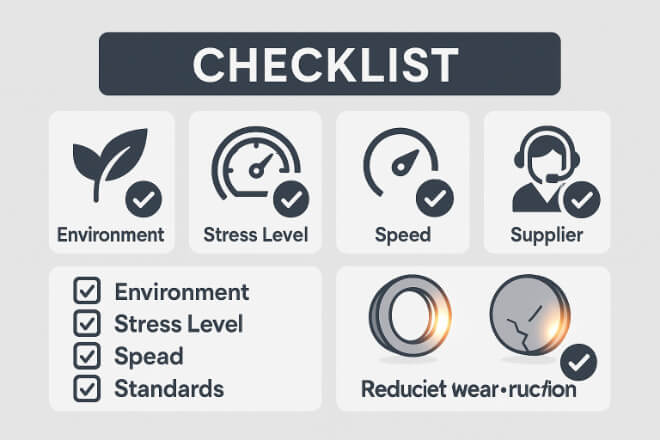
1). 環境を特定する
腐食性、研磨性、または清潔性はありますか?
2). 温度と圧力をチェックする
高いストレス → コバルトグレード
腐食性 + 中程度のストレス → ニッケルのグレード
3). 速度と摩擦を考慮する
高速移動システムでは研磨またはコーティングされたグレードが必要になる場合があります
4). 業界標準を確認する
ISOと安全要件に従う
5). 信頼できるサプライヤーと協力する
実証済みのケーススタディに基づいた推奨事項を依頼する
避けるべきよくある間違い
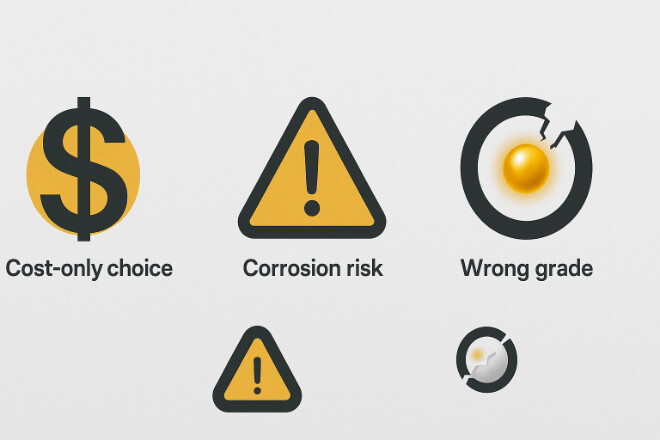
コストのみで選択する
化学的適合性を無視する
メンテナンスサイクルの計画を忘れる
サプライヤーの認証を確認しない
正しいグレードを選択すると、初期価格が高くても生涯コストは下がります。
メンテナンスと交換計画
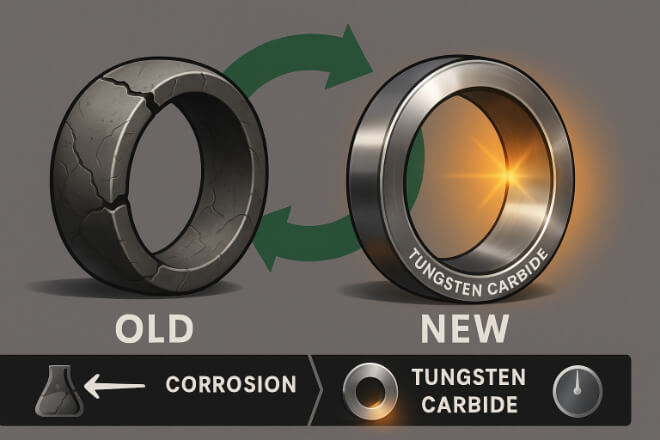
適切なグレードであっても、定期的なケアが必要です。
検査: 重要なシステムでは数週間ごと
警告サイン: 漏れ、騒音、ひび割れ、腐食跡
交換: 必ず元のグレードと寸法に一致させてください
リサイクル:古いタングステンカーバイドリングはリサイクルでき、お金を節約できます。
正しいグレード選択のコストとROI
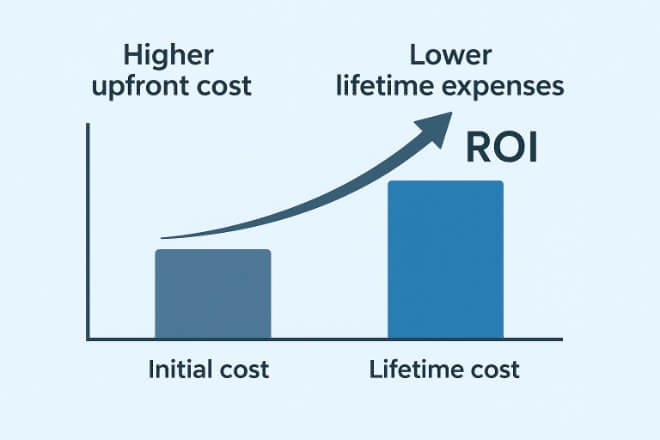
ニッケル結合鋼やコバルト結合鋼の初期費用は、鋼やグラファイト鋼よりも高くなります。しかし、意思決定者にとって、そのリターンは明らかです。
寿命が5~10倍長くなる
故障やシャットダウンの減少
重要なプラントにおけるより安全な操業
より強力な長期貯蓄
ケーススタディ
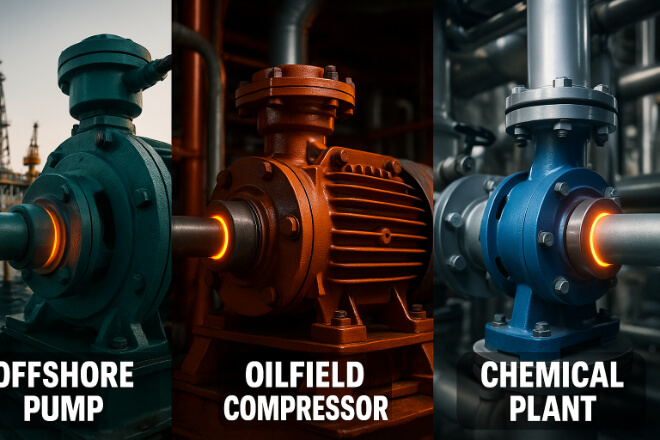
1). オフショアポンプメーカー
海水ポンプの材質をコバルト系からニッケル系に切り替えました。結果:耐用年数の延長と保証請求件数の減少。
2). 油田コンプレッサー
高圧掘削にコバルトグレードを使用しました。結果:ひび割れが減少し、稼働率が向上しました。
3). 化学工場
ステンレス鋼シールをニッケル結合タングステンカーバイドに交換しました。結果:腐食による不具合が低減し、より安全な操作が可能になりました。
適切なグレードの調達方法
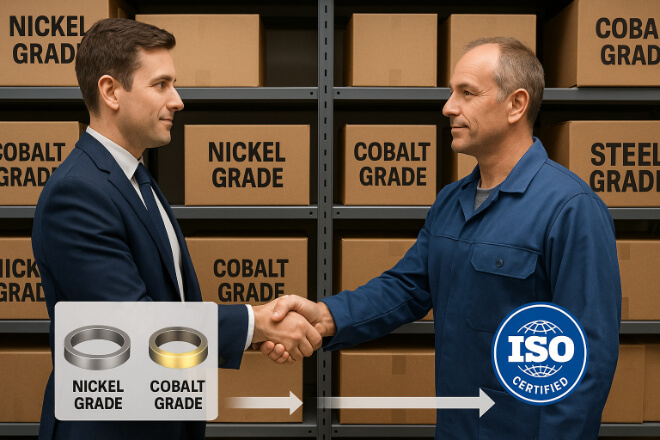
タングステンカーバイドシールリングを購入する際は:
バインダーの種類(ニッケルまたはコバルト)を確認する
流体と圧力に基づいてグレードの推奨を問い合わせる
ISOおよび業界認証を確認する
迅速な配送のために現地在庫のあるサプライヤーを選択してください
結論
適切なタングステンカーバイドシールリンググレードを選択することは、単なる技術的なものではなく、ビジネス上の決定です。
ニッケル結合 → 耐食性に優れている
コバルト結合 → 靭性と負荷に優れている
グレードを動作条件に適合させることにより、意思決定者は信頼性を向上させ、ダウンタイムを削減し、長期的な ROI を高めることができます。
企業の詳細を知りたい場合は、お気軽にお問い合わせください。 お問い合わせ。

